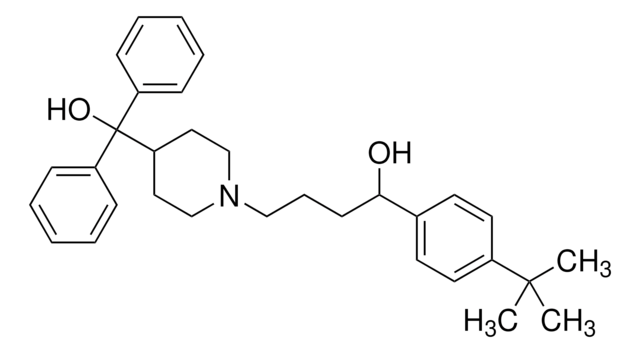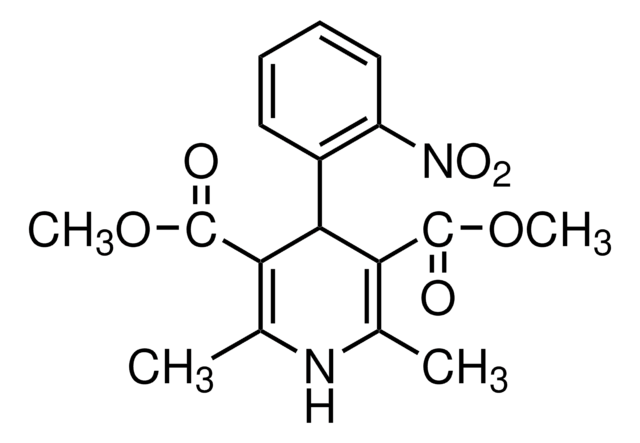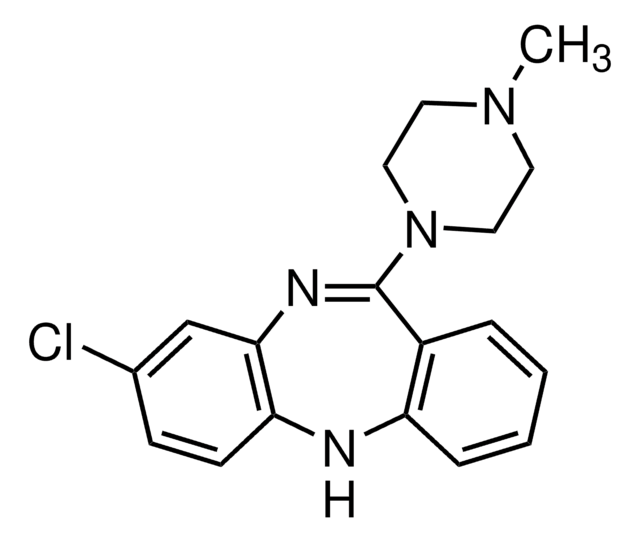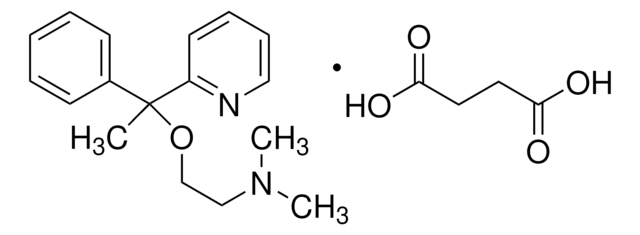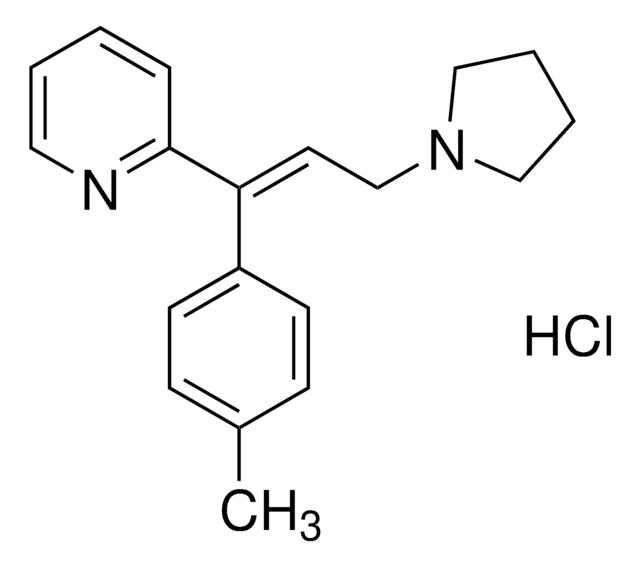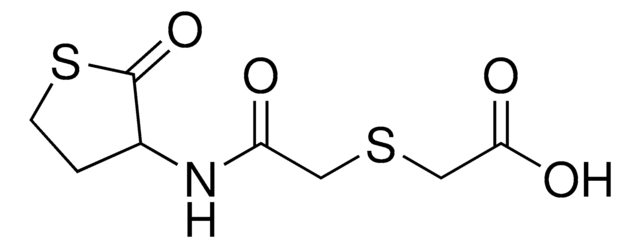T9652
Terfenadin
≥97.5% (HPLC), powder, H1 histamine receptor antagonist
Synonym(e):
α-[4-(1,1-Dimethylethyl)-phenyl]-4-(hydroxydiphenylmethyl)-1-piperidinbutanol
About This Item
Empfohlene Produkte
product name
Terfenadin,
Qualitätsniveau
Löslichkeit
chloroform: soluble 250 mg plus 5 ml of solvent, clear to very slightly hazy, colorless to faintly yellow
H2O: soluble 0.01 mg/mL at 30 °C
1 M HCl: soluble 0.12 mg/mL at 30 °C
hexane: soluble 0.34 mg/mL at 30 °C
0.1 M tartaric acid: soluble 0.45 mg/mL
0.1 M citric acid: soluble 1.1 mg/mL
methanol: soluble 37.5 mg/mL at 30 °C
ethanol: soluble in salt form 37.8 mg/mL at 30 °C
Ersteller
Sanofi Aventis
Lagertemp.
2-8°C
SMILES String
CC(C)(C)c1ccc(cc1)C(O)CCCN2CCC(CC2)C(O)(c3ccccc3)c4ccccc4
InChI
1S/C32H41NO2/c1-31(2,3)26-18-16-25(17-19-26)30(34)15-10-22-33-23-20-29(21-24-33)32(35,27-11-6-4-7-12-27)28-13-8-5-9-14-28/h4-9,11-14,16-19,29-30,34-35H,10,15,20-24H2,1-3H3
InChIKey
GUGOEEXESWIERI-UHFFFAOYSA-N
Angaben zum Gen
human ... ABCB1(5243) , CYP2C8(1558) , CYP3A4(1576) , HRH1(3269) , IL4(3565) , IL5(3567) , KCNH1(3756) , KCNH2(3757)
mouse ... Abcb1a(18671) , Abcb1b(18669)
rat ... Hrh1(24448)
Suchen Sie nach ähnlichen Produkten? Aufrufen Leitfaden zum Produktvergleich
Anwendung
Biochem./physiol. Wirkung
Leistungsmerkmale und Vorteile
Angaben zur Herstellung
H-Sätze
P-Sätze
Gefahreneinstufungen
Aquatic Chronic 4
Lagerklassenschlüssel
11 - Combustible Solids
WGK
WGK 2
Flammpunkt (°F)
Not applicable
Flammpunkt (°C)
Not applicable
Analysenzertifikate (COA)
Suchen Sie nach Analysenzertifikate (COA), indem Sie die Lot-/Chargennummer des Produkts eingeben. Lot- und Chargennummern sind auf dem Produktetikett hinter den Wörtern ‘Lot’ oder ‘Batch’ (Lot oder Charge) zu finden.
Besitzen Sie dieses Produkt bereits?
In der Dokumentenbibliothek finden Sie die Dokumentation zu den Produkten, die Sie kürzlich erworben haben.
Kunden haben sich ebenfalls angesehen
Unser Team von Wissenschaftlern verfügt über Erfahrung in allen Forschungsbereichen einschließlich Life Science, Materialwissenschaften, chemischer Synthese, Chromatographie, Analytik und vielen mehr..
Setzen Sie sich mit dem technischen Dienst in Verbindung.
